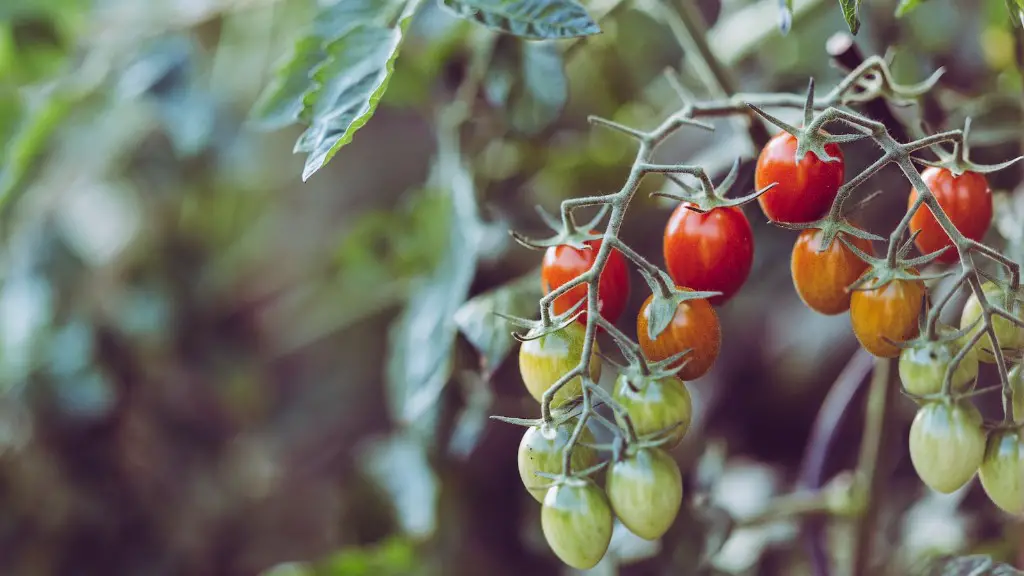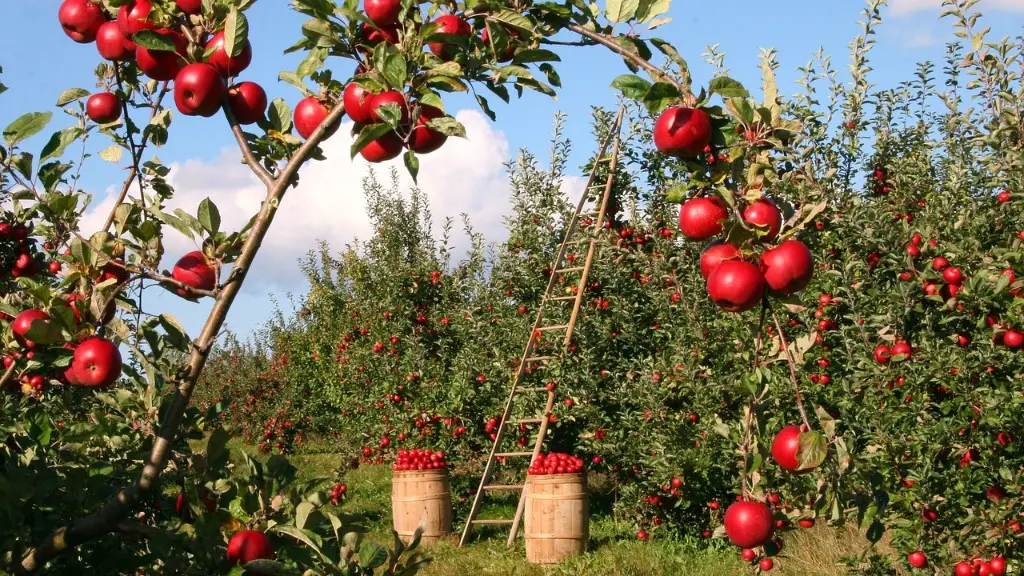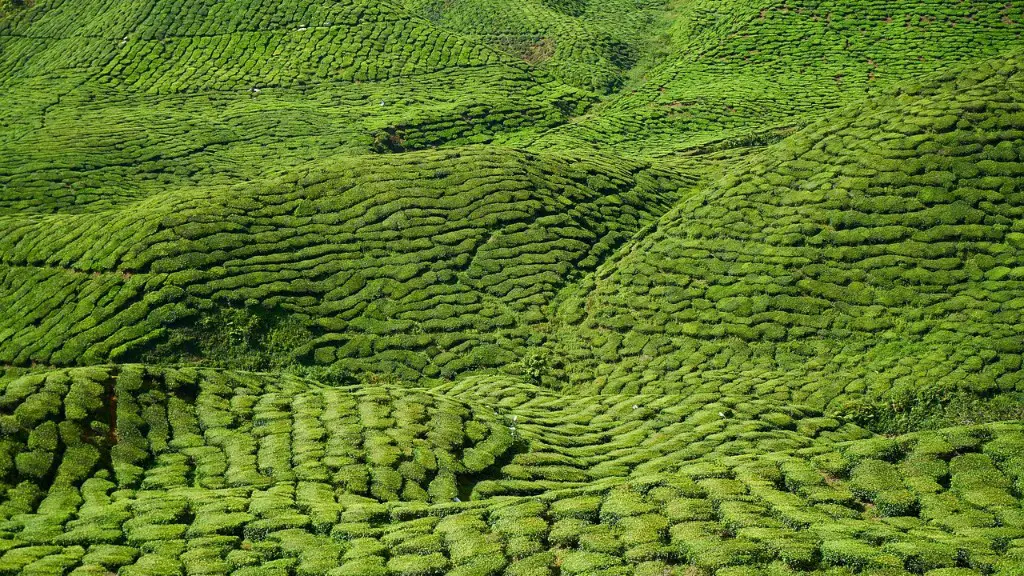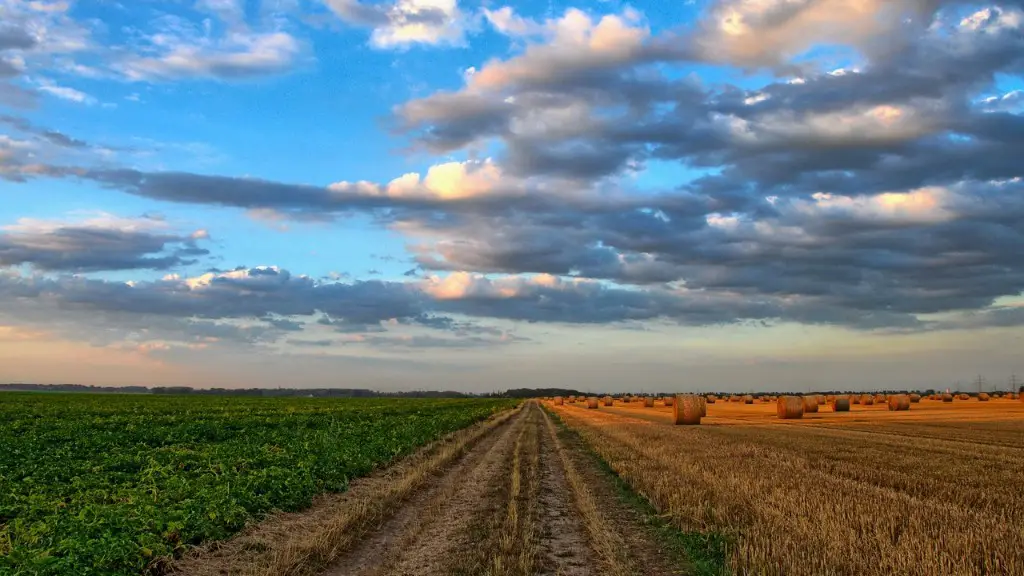Agriculture is one of the most important sectors in the modern world. It provides food, fibre, fuel and other commodities, acts as an economic driver and contributes to the global production and consumption cycle. To ensure that agricultural production is successful, there are several key components which are necessary for successful production. These components include land, climate, seeds, technology, labour and capital.
Starting with land, this is one of the most invaluable resources for any agricultural production system; it does not only guide the type of crops which are cultivated but also the agricultural practices which can be implemented. Climate is just as important as land; it determines the right planting and harvesting times so that the crop can receive sufficient heat, light and moisture at the right moments.
The third key component is seed selection; farmers must select robust and disease-resistant varieties which are suited to their particular environment. If a variety is not up to standard, it is likely that the crop will not perform to its maximum potential. Technology plays a very important role in today’s agricultural production systems, with various tools and equipment allowing for more precise and efficient cultivation and harvesting of crops.
Labour is another key component for successful agricultural production. Without skilled workers and manual labour, it would be almost impossible for crop yields to reach their desired potentials. Lastly, capital is needed to fund and maintain the production system and to ensure the legal and logistical procedures are followed.
Land Preparation
Land preparation is one of the initial steps in any agricultural production system, and it is arguably the most important. The land must be appropriate for the type of crop being cultivated and must be thoroughly tilled and ploughed to remove all weeds and stones before planting can occur. Furthermore, the soil must be tested to determine its fertility and any nutrients that need to be added or removed in order to ensure a successful crop.
Organic matter must often be added to the soil to improve its structure and increase its fertility. Other steps such as applying compost or irrigation systems will also be required in order to keep the land in its optimal condition. Finally, pests and diseases must be controlled to avoid any negative impact on the crops.
Planting & Fertilizing
Once the land has been prepared, the seeds can finally be planted. The seed must be planted at the correct depth and must be free from any weed seeds or diseases. Fertilizers can also be applied at this stage, to give the crop an extra boost of nutrients during its early growth. Careful consideration must be taken to ensure that the amount of fertilizer is not too much; over-fertilization can lead to nutrient leeching, which can be detrimental to the environment.
The timing of planting is also important; many crops require accurate maintenance of soil temperatures and moisture levels in order to perform at their best. It is also important to choose the correct variety of seed to ensure that the crop is tolerant to any pests or disease that may be common in a particular area.
Growth & Maintenance
Once the seeds have been planted, the next step is to maintain and monitor the growth of the crop. This includes performing regular pest and disease checks, irrigating and fertilizing the crop as well as control of weeds. It is important to ensure that the crop receives the necessary nutrients during its growth phase, as it will directly impact the yields at harvest time.
Weed control is particularly important, since weeds can compete with crops for resources such as light, water and nutrients. If a weed infestation is not controlled, it can have a negative impact on crop yields. Therefore, various methods such as mechanical, chemical and biological control must be implemented to keep weeds at bay.
Harvesting & Storage
The final stage of the agricultural production process is harvesting. It is important to have the correct tools and equipment in order to allow for the efficient collection of the crop. Harvesting must be done in a timely manner; if it is done too early, the products may not be of the desired quality, and if it is done too late, the crop may be damaged or lost.
Once the crop has been harvested, it must be stored accurately in order to retain its freshness and quality. This includes selection of the correct packaging, labeling, inspection and any additional treatments which may be necessary, such as treatment for pests and diseases.
Farm Management
Farm management is a critical component of any successful agricultural production system. It includes the planning, organizing, staffing, directing, controlling and budgeting of the various aspects of an agricultural system. It is important that the right balance of these components is met, as any imbalance will have a direct impact on the success of the farm.
Successful farm management requires the identification of any risks and the implementation of precautionary measures; the farmer should have an understanding of the most efficient tools and techniques which can be used to achieve desired results. Additionally, both natural and external forces must be taken into account in order to create an optimal system.
Marketing & Sales
Once the crops have been produced and stored, the final stage of the agricultural production process is marketing and sales. Farmers must determine where their products will be sold and how much they will charge for them in order to ensure that they receive a sufficient return on their investment. This can be done through various strategies, including online marketing, or by directly selling to customers and retailers.
Marketing and sales are arguably the most challenging elements of agricultural production, yet they are also the most rewarding. Farmers must have a thorough understanding of the market and its requirements in order to stay competitive and have a successful business.
Financial Strategies
The final component of successful agricultural production is a financial strategy. This includes an understanding of the costs and profits which are associated with the crop, as well as the most efficient methods which can be used to fund the production system. Financial strategies must also encompass aspects of risk management, in order to ensure that the business remains viable.
Effective financial management is essential for any agricultural production system, and it is important to keep track of the cash flow and income of the business. Keeping accurate records and understanding how the market works are both crucial, as they enable farmers to make well-informed decisions which have the potential to yield a great return.




